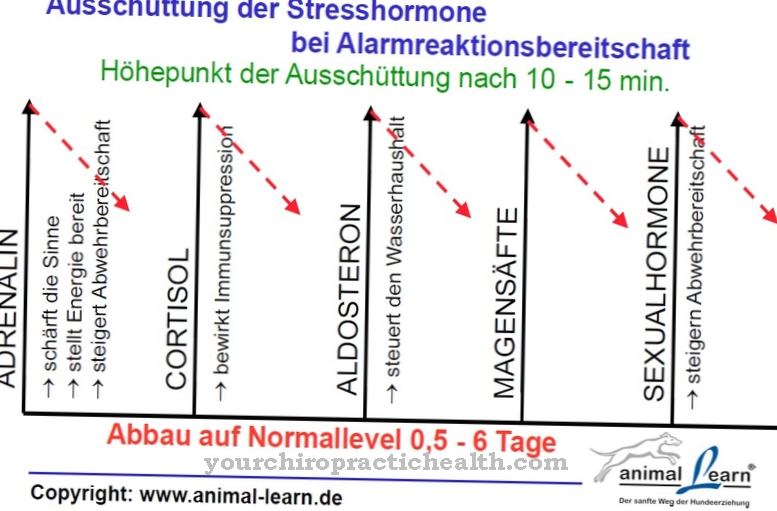Vitamin B9 or Folic acid, also as Folate called, is a water-soluble vitamin, which is one of the so-called B vitamins.
How vitamin B9 (folic acid) works
.jpg)
The body can only store vitamin B9 (folic acid) to a limited extent, so it is important to supply this vitamin to the body at regular intervals.
If this does not happen, symptoms of deficiency can occur. A deficiency in folic acid is widespread in Germany - this can be counteracted with the help of folic acid supplements. Alcoholics, smokers, pregnant and breastfeeding women, people with diseases of the gastrointestinal system and also patients with chronic bleeding are among the risk groups for folic acid deficiency.
A healthy adult has around five to ten milligrams of folic acid in their body, the vast majority of which is stored in the liver.
meaning
Vitamin B9 (folic acid) has several crucial meanings for the body. For example, it plays a role in the formation of blood cells and mucous membrane cells. It also helps build the important genetic material DNA and RNA and also helps with protein metabolism. In addition, folic acid is essential for lipid metabolism.
If the body is not regularly supplied with folic acid through food, a special form of anemia can develop within a short time, usually after four to five months. This is also called megaloblastic anemia. In contrast to the biotin deficiency, a deficiency in folic acid is more common in Germany.
The reasons for this are both too unbalanced nutrition and too long cooking of vegetables. This is often done wrong in practice. Frequent consumption of alcohol can also lead to a deficiency in vitamin B9 folic acid.
Pregnant women in particular should ensure that they have an adequate intake of folic acid. If this does not happen, the embryo can suffer serious disturbances; most often these are neurological disorders. The so-called open back is one of the most common diseases of the unborn child, which develops from the mother's folic acid deficiency.
Occurrence in food
Leafy vegetables, grains, and offal are great sources of vitamin B9 (folic acid). Contrary to popular belief, fish is only a limited source of folic acid. Particularly with vegetables, you should be careful not to cook them too long, otherwise the valuable folic acid is lost. Incidentally, light and oxygen are also harmful to most vegetables.In addition to vegetables, eggs, sunflower seeds and wheat bran also contain an above-average amount of folic acid.
An adult person should consume around 400 micrograms, or 0.4 milligrams of folic acid, every day. Pregnant and breastfeeding women, on the other hand, should consume at least 600 micrograms of folic acid per day. This requirement is well covered by the daily consumption of fresh fruit and vegetables alone.
However, very few Germans manage to eat fruit and vegetables on a regular basis. So it is not surprising that around 80 to 90 percent of the population suffer from at least a slight folic acid deficiency. In these cases, the attending physician will usually prescribe preparations that contain folic acid.
Overdosing is hardly possible, only from an amount of 15 milligrams daily one speaks of such an overdose. Insomnia and nervousness would be the unpleasant consequences of an overdose with folic acid. If you also suffer from a deficiency in vitamin B12, the correct intake of folic acid is only possible to a limited extent.


.jpg)
























